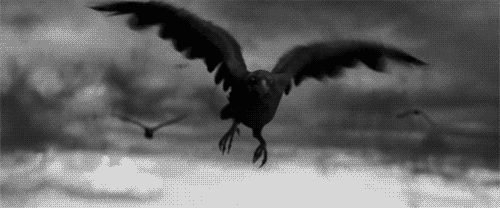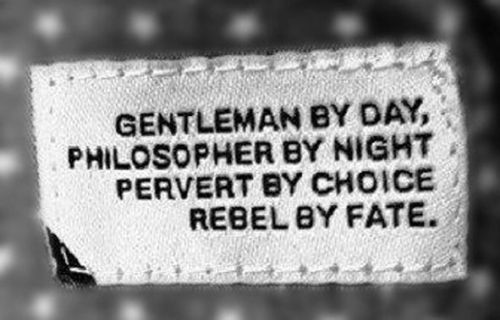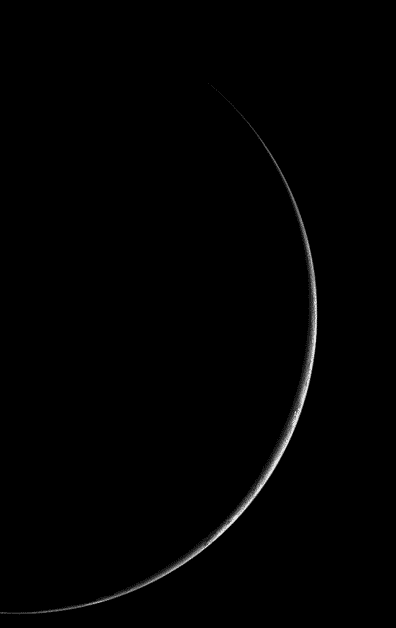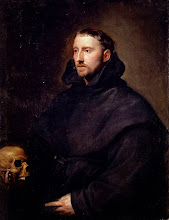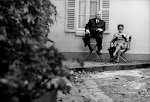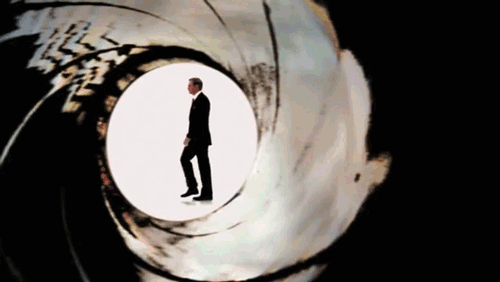Monday, June 30, 2008
Friday, June 27, 2008
Murder by Death (1976)

Murder by Death is a 1976 comedy movie written by Neil Simon and directed by Robert Moore. The plot is a spoof of the traditional country house whodunit, familiar to mystery fiction fans from classics such as Agatha Christie's And Then There Were None, a form also parodied for the stage in Tom Stoppard's The Real Inspector Hound. The cast is an ensemble of British and American comic stars playing send-ups of well-known fictional sleuths, and also features a rare performance by In Cold Blood author Truman Capote. The film was presented at the Venice International Film Festival, in 1976.
The plot takes place in and around the isolated country home inhabited by eccentric multi-millionaire Lionel Twain (Capote), his blind butler, Jamesir Bensonmum (Alec Guinness), and a deaf and mute maid called Yetta (Nancy Walker). As the movie opens, our heroes, all pastiches of famous detectives, are approaching the house through dense, fog-bound forest, accompanied by their assistants or sidekicks; it emerges that they have been invited to "dinner and a murder" over a weekend at Twain's mansion.
Inspector Sidney Wang, played by Peter Sellers, is based on Charlie Chan, and appropriately accompanied by his adopted, Japanese son Willie (Richard Narita). Wang wears elaborate Chinese costumes, and his grammar is frequently criticized by the host.
Dick and Dora Charleston (David Niven and Maggie Smith) are polished, sophisticated society types modeled on Nick and Nora Charles from the Thin Man series of films. Their excellent breeding gets them out of a few scrapes during the course of the weekend.
Milo Perrier (James Coco) is a take on Agatha Christie's Hercule Poirot, and arrives at the house with his chauffeur, Marcel Cassette (James Cromwell in his first feature film role). The portly Perrier is overly fond of food and appears annoyed that he must share a room with lowly Marcel, but is seen sharing his bed in one of the last scenes of the film. He is repeatedly annoyed by being mistaken for a Frenchman, as he is Belgian.
Sam Diamond represents the hard-boiled, American-style detective, a pastiche based on The Maltese Falcon's Sam Spade and Richard Diamond, Private Detective. Played by Peter Falk, he is ably assisted by Eileen Brennan as his tough but loyal secretary, Tess Skeffington.
Christie's other great creation, Miss Marple, appears here as Jessica Marbles, played by Elsa Lanchester as a hearty, tweed-clad Englishwoman, with a frail, seemingly gaga companion, her ancient "nurse" Miss Withers (played by Estelle Winwood, over 90 years old at the time), for whom she is now caring. Ironically, in real life, the two English-born actresses did not care for each other and exchanged mordant, biting insults.
The plot combines a convoluted, highly improbable murder-mystery arc with plenty of farce, slapstick, witty banter, and self-referential humour. Having lured his guests to his mansion (the address of which is given as "2-2 Twain"), Twain announces that, as a test of their sleuthing prowess, they are expected to solve a murder which will take place in the house at midnight that very night, with a reward of $1 million to the winner. The time comes and everything seems fine, until they discover that Twain himself has been murdered. The party spends the rest of the weekend investigating, dining, and bickering, manipulated by a mysterious behind-the-scenes force, confused by red herrings, baffled by the "mechanical marvel" that is Twain's house, and ultimately finding their own lives threatened. The ending piles on twist after twist as each sleuth presents his or her theory on the case.
After a brutal night where one pair is almost killed by a snake, another by a scorpion, another by a falling ceiling, a fourth by poison gas and the fifth by a bomb, they all collect in the office where the butler — believed to have been murdered earlier — is sitting behind the desk very much alive. Each detective has a different idea to who the real murderer is. However, the man sitting behind the desk has another surprise. He pulls off his mask to reveal he is Lionel Twain, the first victim. He takes a dig at detective stories for introducing crucial characters at the last minute for the traditional "twist in the tale", something which the assembled detectives had been doing a few minutes earlier. None of the detectives walk away with the million dollars for they were all wrong.
After the guests leave, Twain pulls off another mask, revealing "himself" to be Yetta, the deaf cook. It is not clear whether any murder has actually taken place. In the last spoken line of the movie, Sydney Wang, when asked if there was a murder or not, replies "Yes; killed good weekend!"
TRIVIA:
This movie marked the film debut of James Cromwell.
Orson Welles was originally considered for the role of Inspector Wang but was unable to accept because he was appearing in a play in Italy.
'Neil Simon' remained on the set to take care of re-writes, as he did with this picture's sequel, The Cheap Detective (1978). Simon took such a shine to Alec Guinness during the picture's production that he told him if he did not like anything in the film, he'd immediately rewrite it for him, but Guinness assured him it was great fun for him.
Myrna Loy was originally offered the part of Dora Charleston (a role that was a spoof of the character that she had played in the Thin Man movies) but she wisely declined, later stating that "it would have been ridiculous to have Myrna Loy doing Myrna Loy". She also stated that she didn't want her "ass pinched by David Niven".
During the first scene when Alec Guinness licks the stamps for the invitations, the stamps used were the 8 cent Dwight D. Eisenhower "No Dot", three-color stamps released in May 1971 and not the more popular 6 cent stamp released nearly a year earlier. First-class postage stamps were up to 13 cents by the time the movie was produced.
It was while working on this film that Alec Guinness received the script for Star Wars (1977). He read it between scenes in his dressing room.
All of the detectives in the film are parodies of the work of three authors: Dashiell Hammett, whose Nick Charles and Sam Spade were the basis for Dick Charleston and Sam Diamond, respectively; Agatha Christie, whose Hercule Poirot and Miss Marple inspired Milo Perrier and Miss Marbles; Earl Derr Biggers Charlie Chan was the basis for Inspector Sidney Wang and his son.
Immediately after completing the film, Peter Sellers was so convinced it was going to bomb, he convinced the producers to buy back his percentage share in the movie, thus depriving himself of a cut of the profits with the film when it went on to be a hit.
The screaming woman sound used as a doorbell is Fay Wray's screams from King Kong (1933).
Originally Katharine Hepburn was meant to play a character called Dame Abigail Christian (a spin on Agatha Christie). Hepburn dropped out after hearing Myrna Loy would not do the film. The character was changed to Dame Abigail Christmas, and Estelle Winwood took the role. After numerous re-writes Estelle became Nurse Withers to a new character, Elsa Lanchester's Miss Jessica Marbles.
Estelle Winwood's last movie.
Nancy Walker's last movie.
An interview with writer 'Neil Simon' in a DVD extra Murder by Death: A Conversation with Neil Simon (1999) (V) has him reveal that he and director Robert Moore at one time wished to replace Truman Capote with a real actor in the part of Lionel Twain but ultimately this never eventuated.
Three memorable scenes from this movie ended up on the cutting-room floor: 1) The Charlestons narrowly avoid hitting Tess Skeffington; she's hiking back to her and Sam Diamond's car, with gasoline from a station five miles away. "Thank Heaven you saw me when you did," she says. Dick makes sure she's okay - "Keep to the side of the road," he advises her - then simply drives off and leaves her to walk. 2) Willie Wang - upon rejoining the others in the drawing room, after covering up Lionel Twain's corpse in the dining hall - has noticed something that none of the others did: Twain was clutching a note in his hand. Without bothering to read the note first, Willie gloats about how he is a better detective than his own father gives him credit for: "I'm sick and tired of being just your #3 adopted son. The $1 million goes to whoever solves the crime, and that could be me just as well as you!" Then Sam takes the note at gunpoint ("Better stand back, Tess; I don't want you to get hurt when the bullet comes out his other ear") and reads it ("'Please call dairy and stop deliveries of milk; Lionel Twain deceased.' So much for your clue, kid"). Willie sheepishly apologizes to Sidney. 3) Leaving Twain Manor at the end of the movie, the Wangs pass a vintage car en route to the same destination. It's driven by Sherlock Holmes and Doctor Watson. They ask directions, which Sidney gives them despite Willie's efforts to warn them it's a ripoff. Willie asks why his pop didn't tell them the truth. Sidney's reply: "Let idiots find out for themselves."
Peter Sellers also played a taxi driver, but the scene was deleted.
Thursday, June 26, 2008
Wednesday, June 18, 2008
Friday, June 13, 2008
Ken Adam Designs The Movies, James Bond and Beyond - by Sir Ken Adam and Sir Christopher Frayling

Ken Adam is the most distinguished living production designer in the world. His work spans seven decades and more than seventy-five movies, from his revolutionary designs for the first seven James Bond movies to work on Stanley Kubrick’s Barry Lyndon and Alan Bennett’s The Madness of King George, for both of which he won an Oscar.
Born in Germany, Adam trained in London as an architect, and his first Art Director credit was on Around the World in Eighty Days in 1956. He has subsequently worked in Hollywood, Italy, and Germany as well as Britain
Ken Adam’s extensive personal archive of concept sketches, drawings, set stills, and photographs from every stage of his career forms the basis of this book. Using case studies from the 1950s to the present day, it shows the whole cycle of his production designs, from initial concept to what appears on the screen itself. The result encapsulates the evolving role of the Art Director and Production Designer from the golden age of the big studios to the digital fantasies of the early twenty-first century.
The commentary is by Christopher Frayling, Rector of the Royal College of Art, London, Chairman of the Arts Council, England, Chairman of the UK’s Design Council, and a Trustee of the Victoria & Albert Museum.
Datastream
Binding: Hardback
Pages: 224
Illustrations: 250; 180 in colour
Size: 13" x 9"
R.R.P: £32 / $65
Released: 29th September 2008 (UK) / 27th November 2008 (USA)
Publisher: Thames & Hudson
Thursday, June 12, 2008
Technical infos

From MI6:
A new gyroscopic POV camera mount is making its big-screen debut in the new James Bond film, Quantum of Solace. Called the Snakehead, the new camera system from SpaceCam Systems (Los Angeles), specialists in aerial and specialized gyro-stabilized cinematography, allows pilots to fly as aggressively as they dare without sacrificing the drama of the shot.
SpaceCam Systems had the system on set in the canyons of Baja, Mexico, in April for a month-long shoot and it performed extremely well, according to veteran aerial cinematographer Dwayne McClintock, who co-designed the system using 3D CAD software from company called SolidWorks. During filming, a Piper Aerostar 700 with Snakeheads on the nose and tail captured two planes in an aerial chase sequence.
With a 360-degree remotely controlled spherical range of view, the patented Snakehead is a gyroscopically stabilized periscope, compatible with most HD cameras. The lens system maintains a level horizon at all times.
Traditional aerial cinematography approaches—for example, a fixed periscope on a Lear jet–can distract and sometimes sicken viewers by depicting a seemingly lurching horizon. If the filming plane needs to adopt the point of view of a chasing aircraft, Snakehead operators can turn off the stabilization to more accurately convey its maneuvers.
SpaceCam collaborated on the design with engineers at Ballista of Westlake Village, CA, which engineered the optics, also using SolidWorks CAD software.
SpaceCam Systems offers a variety of camera options, including 35mm 4-perf, 35mm 8-perf, 65mm 5-perf, 65mm 15-perf, and numerous HD cameras
Sunday, June 08, 2008
Dino Risi : 1917-2008
Vacanze col gangster (Italia, 1951)
Regia: Dino Risi, sceneggiatura: Dino Risi, Ennio De Concini, interpreti principali: Terence Hill, Marc Lawrence, Lamberto Maggiorani, Bud Spencer
Viale della speranza (Italia, 1952)
Regia: Dino Risi, sceneggiatura: Dino Risi, Ettore Maria Margadonna, Gino De Santis, Franco Cannarosso, interpreti principali: Lilliana Bonfatti, Maria Pia Casilio, Cosetta Greco, Silvio Bagolini
Paradiso per quattro ore – Episodio di “Amore in città” (Italia, 1953)
Regia: Dino Risi, sceneggiatura: Cesare Zavattini, Aldo Buzzi, Luigi Malerba, Tullio Pinelli, Vittorio Veltroni, Marco Ferreri, interpreti principali: vari
Il segno di Venere (Italia, 1954)
Regia: Dino Risi, sceneggiatura: Dino Risi, Ennio Flajano, Valeri, Cesare Zavattini, interpreti principali: Vittorio De Sica, Sophia Loren, Alberto Sordi, Peppino De Filippo
Pane, amore e… (Italia, 1955)
Regia: Dino Risi, sceneggiatura: Dino Risi, Ettore Maria Margadonna, Marcello Girosi, Vincenzo Talarico, interpreti principali: Antonio Cifariello, Vittorio De Sica, Sophia Loren, Lea Padovani
Poveri ma belli (Italia, 1956)
Regia: Dino Risi, sceneggiatura: Dino Risi, Pasquale Festa Campanile, Massimo Franciosa, interpreti principali: Maurizio Arena, Renato Salvatori, Marisa Allasio, Mario Ambrosino
Belle ma povere (Italia, 1957)
Regia: Dino Risi, sceneggiatura: Dino Risi, Pasquale Festa Campanile, Massimo Franciosa, interpreti principali: Maurizio Arena, Renato Salvatori, Marisa Allasio, Lorella De Luca, Alessandra Panaro
La nonna Sabella (Italia, 1957)
Regia: Dino Risi, sceneggiatura: Dino Risi, Pasquale Festa Campanile, Massimo Franciosa, Ettore Giannini, interpreti principali: Peppino De Filippo, Sylva Koscina, Tina Pica, Mario Ambrosino
Poveri Milionari (Italia, 1958)
Regia: Dino Risi, sceneggiatura: Dino Risi, Pasquale Festa Campanile, Massimo Franciosa, interpreti principali: Maurizio Arena, Renato Salvatori, Alessandra Panaro, Lorella De Luca
Venezia, la luna e tu (Italia, 1958)
Regia: Dino Risi, sceneggiatura: Dino Risi, Pasquale Festa Campanile, Massimo Franciosa, interpreti principali: Alberto Sordi, Nino Manfredi, Marisa Allasio, Riccardo Garrone
Il mattatore (Italia, 1959)
Regia: Dino Risi, sceneggiatura: Etttore Scola, Alessandro Continenza, Ruggero Maccari, interpreti principali: Vittorio Gassman, Armando Annuale, Gianni Baghino, Peppino De Filippo
Il vedovo (Italia, 1959)
Regia: Dino Risi, sceneggiatura: Dino Risi, Fabio Carpi, Rodolfo Sonego, interpreti principali: Alberto Sordi, Franca Valeri, Nando Bruno, Ignazio Leone
Un amore a Roma (Italia, 1960)
Regia : Dino Risi, sceneggiatura: Ennio Flajano, Ercole Patti, interpreti principali: Mylene Demongeont, Vittorio De Sica, Peter Baldwin, Umberto Orsini
A porte chiuse (Italia, 1961)
Regia: Dino Risi, sceneggiatura: Marcello Coscia, Dino De Palma, Sandro Continenza, interpreti principali: Vittorio Caprioli, Anita Ekberg, Fred Clark, Claudio Gora
Una vita difficile (Italia, 1961)
Regia: Dino Risi, sceneggiatura: Rodolfo Sonego, interpreti principali: Franco Fabrizi, Claudio Gora, Alberto Sordi, Lea Massari
La marcia su Roma (Italia, 1962)
Regia: Dino Risi, sceneggiatura: Age, Furio Scarpelli, Ruggero Maccari, Ettore Scola, interpreti principali: Vittorio Gassman, Ugo Tognazzi, Giampiero Albertini, Nando Angelini
Il sorpasso (Italia, 1962)
Regia: Dino Risi, sceneggiatura: Dino Risi, Ettore Scola, Ruggero Maccari, interpreti principali: Vittorio Gassman, Catherine Spaak, Jean Louis Trintignant, Nando Angelini
Il giovedì (Italia, 1963)
Regia: Dino Risi, sceneggiatura: Dino Risi, Castellano, Pipolo, interpreti principali: Walter Chiari, Michelle, Mercier, Roberto Ciccolini, Silvio Bagolini
I mostri (Italia, 1963)
Regia: Dino Risi, sceneggiatura: Age, Furio Scarpelli, Ruggero Maccari, Ettore Scola, interpreti principali: Vittorio Gassman, Ugo Tognazzi, Sal Borghese, Lando Buzzanca
Il successo (Italia, 1963)
Regia: Dino Risi, Mauro Morassi, sceneggiatura: Ruggero Maccari, Ettore Scola, interpreti principali: Anouk Aimee, Vittorio Gassman, Jean Louis Trintignant, Armando Bandini
La telefonata – Episodio de “Le bambole” (Francia/Italia, 1964)
Regia: Dino Risi, sceneggiatura: Rodolfo Sonego, interpreti principali: Nino Manfredi, Virna Lisi, Alicia Brandet
Il Gaucho (Italia, 1964)
Regia: Dino Risi, sceneggiatura: Dino Risi, Tullio Pinelli, Ruggero Maccari, Ettore Scola, interpreti principali: Vittorio Gassman, Amedeo Nazzari, Silvana Pampanini, Nando Angelini
Una giornata decisiva – Episodio de “I complessi” (Francia/Italia, 1965)
Regia: Dino Risi, sceneggiatura: Marcello Fondato, Ettore Scola, Ruggero Maccari, interpreti principali: Nino Manfredi, Riccardo Garrone, Ilaria Occhini, Umberto D’Orsi
L’ombrellone (Francia/Italia, 1965)
Regia: Dino Risi, sceneggiatura: Dino Risi, Ennio De Concini, intepreti principali: Sandra Milo, Enrico Maria Salerno, Leopoldo Trieste, Jean Sorel
Il marito di Attilia – Episodio de “I nostri mariti” (Francia/Italia, 1966)
Regia: Dino Risi, sceneggiatura: Age, Furio Scarpelli, Stefano Strucchi, interpreti principali: Ugo Tognazzi, Liana Orfei, Giulio Rinaldi, Carlo Pisacane
Operazione San Gennaro (Italia, 1966)
Regia: Dino Risi, sceneggiatura: Nino Manfredi, Ennio De Concini, interpreti principali: Nino Manfredi, Totò, Mario Adorf, Pinuccio Ardia
Straziami, ma di baci saziami (Italia, 1966)
Regia: Dino Risi, sceneggiatura: Age, Furio Scarpelli, interpreti principali: Nino Manfredi, Pamela Tiffin, Ugo Tognazzi, Gigi Ballista
Il profeta (Italia, 1967)
Regia: Dino Risi, sceneggiatura: Dino Risi, Ruggero Maccari, Ettore Scola, interpreti principali: Vittorio Gassman, Oreste Lionello, Ann Margret, Fiorenzo Fiorentini
Il tigre (Italia, 1967)
Regia: Dino Risi, sceneggiatura: Age, Furio Scarpelli, interpreti principali: Vittorio Gassman, Ann Margret, Eleanor Parker, Caterina boratto
Il giovane normale (Italia, 1969)
Regia: Dino Risi, sceneggiatura: Dino Risi, Maurizio Costanzo, Ruggero Maccari, interpreti principali: Janet Agren, Lino Capolicchio, Jeff Morrow, Umberto D’Orsi
Vedo Nudo (Italia, 1969)
Regia: Dino Risi, sceneggiatura: Iaia Fiastri, Ruggero Maccari. Interpreti principali: Nino Manfredi, Sylva Koscina, Nino Manfredi, Enrico Maria Salerno, Umberto D’Orsi
La moglie del prete (Italia, 1970)
Regia: Dino Risi, sceneggiatura: Ruggero Maccari, Bernardino Zapponi, interpreti principali: Sophia Loren, Marcello Mastroianni, Venantino Venantini, Gino Cavalieri
In nome del popolo italiano (Italia, 1971)
Regia: Dino Risi, sceneggiatura: Age, Furio Scarpelli, interpreti principali: Agostina Belli, Yvonne Furneaux, Vittorio Gassman, Ugo Tognazzi
Noi donne siamo fatte così (Italia, 1971)
Regia: Dino Risi, sceneggiatura: Age, Furio Scarpelli, Rodolfo Sonego, Ettore Scola, interpreti principali: Monica Vitti, Clara Colosimo, Filippo De Gara, Pupo De Luca
Mordi e fuggi (Italia, 1972)
Regia: Dino Risi, sceneggiatura: Dino Risi, Ruggero Maccari, Bernardino Zapponi, interpreti principali: Gianni Agus, Carole Andrè, Bruno Cirino, Nicoletta Machiavelli
Sessomatto (Italia, 1973)
Regia: Dino Risi, sceneggiatura: Ruggero Maccari, interpreti principali: Laura Antonelli, Giancarlo Giannini, Paola Borboni, Duilio De Prete
Profumo di donna (Italia, 1974)
Regia: Dino Risi, sceneggiatura: Dino Risi, Ruggero Maccari, interpreti principali: Vittorio Gassman, Alessandro Momo, Agostina Belli, Moira Orfei
Anima persa (Francia/Italia, 1976)
Regia: Dino Risi, sceneggiatura: Dino Risi, Bernardino Zapponi, interpreti principali: Vittorio Gassman, Catherine Deneuve, Danilo Mattei, Ester Carloni
La stanza del vescovo (Italia, 1976)
Regia: Dino Risi, sceneggiatura: Dino Risi, Leo Benvenuti, Piero Chiara, Piero De Bernardi, interpreti principali: Ornella Muti, Ugo Tognazzi, Patrick Dewaere, Piero Mazzarella
Telefoni Bianchi (Italia, 1976)
Regia: Dino Risi, sceneggiatura: Dino Risi, Ruggero Maccari, Bernardino Zapponi, interpreti principali: Agostina Belli, Vittorio Gassman, Ugo Tognazzi, Cochi Ponzoni, Renato Pozzetto
I nuovi mostri (Italia, 1977)
Regia: Dino Risi, Ettore Scola, Mario Monicelli, Claudio Risi, sceneggiatura: Age, Furio Scarpelli, Ettore Scola, Bernardino Zapponi, Ruggero Maccari, interpreti principali: Vittorio Gassman, Ornella Muti, Alberto Sordi, Ugo Tognazzi
Primo amore (Italia, 1978)
Regia: Dino Risi, sceneggiatura: Dino Risi, Ruggero Maccari, interpreti principali: Ornella Muti, Ugo Tognazzi, Riccardo Billi, Caterina Boratto
Caro papà (Canada/Francia/Italia, 1979)
Regia: Dino Risi, sceneggiatura: Dino Risi, Marco Risi, Bernardino Zapponi, interpreti principali: Vittorio Gassman, Stefano Madia, Aurore Clement, Julien Guiomar
Roma – Episodio de “I seduttori della domenica” (Francia/Gran Bretagna/USA/Italia, 1980)
Regia: Dino Risi, sceneggiatura: Age, Furio Scarpelli, interpreti principali: Ugo Tognazzi, Lino Ventura, Sylva Koscina, Rossana Podestà
Sono fotogenico (Italia, 1980)
Regia: Dino Risi, sceneggiatura: Dino Risi, Marco Risi, Bernardino Zapponi, interpreti principali: Edwige Fenech, Renato Pozzetto, Ugo Tognazzi, Vittorio Gassman
Fantasma d’amore (Francia/Italia, 1981)
Regia: Dino Risi, sceneggiatura: Dino Risi, Bernardino Zapponi, interpreti principali: Marcello Mastroianni, Romy Schneider, Victoria Zinny, Michael Kroecher
Sesso e volentieri (Italia, 1982)
Regia: Dino Risi, sceneggiatura: Dino Risi, Enrico Vanzina, Bernardino Zapponi, Laura Antonelli, Giuliana Calandra, Johnny Dorelli, Gloria Guida
Dagobert (Francia/Italia, 1984)
Regia: Dino Risi, sceneggiatura: Dino Risi, Age, Gerard Brach, interpreti principali: Carol Bouquet, Ugo Tognazzi, Michel Serrault, Michel Lonsdale
Scemo di Guerra (Francia/Italia, 1985)
Regia: Dino Risi, sceneggiatura: Dino Risi, Age, Furio Scarpelli, interpreti principali: Beppe Grillo, Fabio Testi, Bernard Blier, Claudio Bisio
Il Commissario Lo Gatto (Italia, 1986)
Regia: Dino Risi, sceneggiatura: Dino Risi, Enrico Vanzina, Carlo Vanzina, interpreti principali: Lino Banfi, Galeazzo Benti, Maurizio Ferrini, Maurizio Micheli, Gianluigi Pizzetti
Teresa (Italia, 1987)
Regia: Dino Risi, sceneggiatura: Dino Risi, Bernardino Zapponi, Graziano Diana, interpreti principali: Luca Barbareschi, Serena Grandi, Pupo De Luca, Eros Pagni
Tolgo il disturbo (Italia, 1989)
Regia: Dino Risi, sceneggiatura: Dino Risi, Bernardino zapponi, Enrico Oldoini, interrpeti principali: Vittorio Gassman, Elliott Gould, Dominique Sanda, Valentina Holtkamp
Giovani e belli (Italia, 1996)
Regia: Dino Risi, sceneggiatura: Dino Risi, Bernardino Zapponi, interpreti principali: Anna Falchi, Edoardo Scatà, Luca Venantini, Carla Cassola

Subscribe to:
Posts (Atom)







